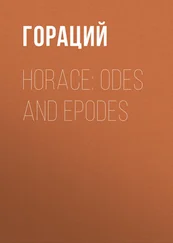Horace Walpole - Horace Walpole and his World
Здесь есть возможность читать онлайн «Horace Walpole - Horace Walpole and his World» — ознакомительный отрывок электронной книги совершенно бесплатно, а после прочтения отрывка купить полную версию. В некоторых случаях можно слушать аудио, скачать через торрент в формате fb2 и присутствует краткое содержание. Жанр: foreign_prose, foreign_antique, на английском языке. Описание произведения, (предисловие) а так же отзывы посетителей доступны на портале библиотеки ЛибКат.
- Название:Horace Walpole and his World
- Автор:
- Жанр:
- Год:неизвестен
- ISBN:нет данных
- Рейтинг книги:4 / 5. Голосов: 1
-
Избранное:Добавить в избранное
- Отзывы:
-
Ваша оценка:
- 80
- 1
- 2
- 3
- 4
- 5
Horace Walpole and his World: краткое содержание, описание и аннотация
Предлагаем к чтению аннотацию, описание, краткое содержание или предисловие (зависит от того, что написал сам автор книги «Horace Walpole and his World»). Если вы не нашли необходимую информацию о книге — напишите в комментариях, мы постараемся отыскать её.
Horace Walpole and his World — читать онлайн ознакомительный отрывок
Ниже представлен текст книги, разбитый по страницам. Система сохранения места последней прочитанной страницы, позволяет с удобством читать онлайн бесплатно книгу «Horace Walpole and his World», без необходимости каждый раз заново искать на чём Вы остановились. Поставьте закладку, и сможете в любой момент перейти на страницу, на которой закончили чтение.
Интервал:
Закладка:
“It is somewhat curious,” says his biographer, “as a proof of the inconsistency of the human mind, that, having built his Castle with so little view to durability, Walpole entailed the perishable possession with a degree of strictness which would have been more fitting for a baronial estate. And that, too, after having written a fable entitled ‘The Entail,’ in consequence of some one having asked him whether he did not intend to entail Strawberry Hill, and in ridicule of such a proceeding.”
Inconsistency, caprice, eccentricity, affectation, are faults which have been freely charged against the character of Horace Walpole. His strong prejudices and antipathies, his pride of rank, his propensity to satire, even his sensitive temperament, made him many enemies, who not only exaggerated his failings, but succeeded, in some instances at least, in transmitting their personal resentments to men of the present century.
As a politician, especially, Walpole has received rather hard measure from the partisan critics on both sides. A generation back, Whig Reviewers and Tory Reviewers vied with each other in defaming his memory. Macaulay and Croker, who seldom agreed in anything, were of one accord in this. To Croker, of course, Horace was just a place-holder who furnished a telling example of Whig jobbery. To rake up all the details of his places in the Exchequer, and his “rider,” or charge, on the place in the Customs, to compute and exaggerate his gains from each of these sources, to track him in dark intrigues for extending his tenure of one appointment and bettering his position in another; all this was congenial employment for the Rigby of the nineteenth century, as it would have been for his prototype in the eighteenth. The motive of Macaulay’s deadly attack is not quite so obvious. Walpole’s politics were those of his father and of the old Whigs generally. While in theory inclined to Republicanism—though he was never, as he tells us, quite a Republican 9 9 “I have been called a Republican; I never was quite that.”—Walpole to Lady Ossory, July 7, 1782.
—it was his habit, on practical questions, to consider what course the great Sir Robert would have taken under similar circumstances. There seems nothing in all this to excite the wrath of the most atrabilious Liberal. The truth appears to be that, in the Whig circles of Macaulay’s time, there existed a traditional grudge against Horace Walpole. In the “Memorials of Charles James Fox,” which were arranged by Lord Vassall-Holland, and edited by Lord John Russell, both the noble commentators speak of Horace in terms of undisguised bitterness. Nor is the cause very far to seek. In politics, Conway was under the dominion of Walpole; and Conway, on more than one critical occasion, disobliged the Rockingham faction, from which the modern Whigs deduce their origin. “Conway,” says Lord John Russell, writing of the events of 1766, “had been made Secretary of State by Lord Rockingham, and ought to have resigned when Lord Rockingham left office; but Mr. Walpole did not choose that this should be so.” Sixteen years later, Conway sat again in a Cabinet presided over by Lord Rockingham, and when that nobleman died, he again refused to resign. It will be remembered that, on this occasion, the Cavendishes and Fox quitted their places when the Treasury was given to Lord Shelburne, instead of their own nominee, the Duke of Portland, whose only recommendations were that he was Lord of Welbeck, and had married a daughter of the House of Devonshire.
In 1782, the Duke of Richmond, Conway’s son-in-law, concurred with Conway in declining to desert the new Premier; and we know that Walpole stoutly supported, if he did not dictate, the joint resolution of his two friends. Lord Holland tells us that Fox did not like Walpole at all, and accounts for this dislike by suggesting that his uncle may have imbibed some prejudice against Walpole for unkindness shown to the first Lord Holland. But this seems going needlessly far back for an explanation. There can be no doubt that Fox looked on Walpole as having assisted to thwart his design of governing England in the name of the insignificant Duke of Portland, and detested him accordingly. Nor did subsequent events tend to soften Fox’s recollection of this passage in his life, or of the persons concerned in it. Had he overcome his jealousy of Lord Shelburne, or had he succeeded in compelling his rival to bow before the “wooden idol”—so Lord John Russell himself calls Portland—which he had set up, he would probably, in either case, have avoided the ill-famed coalition with Lord North, which was the main cause of his long-continued exclusion from power. Walpole had spoken his mind very plainly on the subject. “It is very entertaining,” he wrote, “that two or three great families should persuade themselves that they have an hereditary and exclusive right of giving us a head without a tongue.” 10 10 Letter to Mann, July 10, 1782.
And he told Fox himself: “My Whiggism is not confined to the Peak of Derbyshire.” 11 11 Letter to Lady Ossory, July 7, 1782.
We can imagine with what horror such utterances as these were received by the believers in the Whig doctrine of divine right. No wonder that Mr. Fox did not like Walpole. And what Mr. Fox disliked was, of course, anathema to every true Whig, and especially to an Edinburgh Reviewer of 1833.
What do the complaints of Walpole’s political tergiversation amount to? It was certainly not a wise act of Horace to hang up in his bedroom an engraving of the death warrant of Charles I. with the inscription “Major Charta.” But the Whig essayist, while reproving Walpole’s strange fancy that, without the instrument in question, the Great Charter would have become of little importance, might have recollected that he had himself professed his inability to see any essential distinction between the execution of the Royal Martyr and the deposition of his son. Again, there was inconsistency, no doubt, between Walpole’s admiration of the Long Parliament, and his detestation of the National Assembly; yet it should be borne in mind that, in the midst of his disgust at the excesses of the French Revolution, he protested that he was very far from subscribing to the whole of Burke’s “Reflections.” Why then should we be told that “he was frightened into a fanatical royalist, and became one of the most extravagant alarmists of those wretched times?” We may surely ask on his behalf the question which Macaulay put when the consistency of his own master, Sir James Mackintosh, was impugned: “Why is one person to be singled out from among millions, and arraigned before posterity as a traitor to his opinions, only because events produced on him the effect which they produced on a whole generation?”
When the critic tells us that Walpole was a mischief-maker who “sometimes contrived, without showing himself, to disturb the course of Ministerial negotiations, and to spread confusion through the political circles,” we cannot avoid seeing in these words a resentful reference to the part taken by Conway on the occasions above referred to.
It was not Walpole’s fault that the party conflicts of his time were mainly about persons. We have seen the importance which Fox attached to these personal questions. We may safely say that this great man’s disapproval of Walpole’s conduct did not spring from any difference on matters of principle. If Horace was an opponent of Parliamentary Reform, this was an open question among Fox’s most intimate associates. If he objected to the enfranchisement of the Roman Catholics, most Whigs of his time did the same. In the dispute with America, as we shall see, he maintained, from the first, the right of the Colonies to liberty and independence. Nor did he retract his expressions of sympathy with the American Republic when the horrors of the French Revolution made him a supporter of Tory policy in England and on the Continent. He always lamented as one of the worst effects of the French excesses that they must necessarily retard the progress and establishment of civil liberty. 12 12 Miss Berry.
Интервал:
Закладка:
Похожие книги на «Horace Walpole and his World»
Представляем Вашему вниманию похожие книги на «Horace Walpole and his World» списком для выбора. Мы отобрали схожую по названию и смыслу литературу в надежде предоставить читателям больше вариантов отыскать новые, интересные, ещё непрочитанные произведения.
Обсуждение, отзывы о книге «Horace Walpole and his World» и просто собственные мнения читателей. Оставьте ваши комментарии, напишите, что Вы думаете о произведении, его смысле или главных героях. Укажите что конкретно понравилось, а что нет, и почему Вы так считаете.












